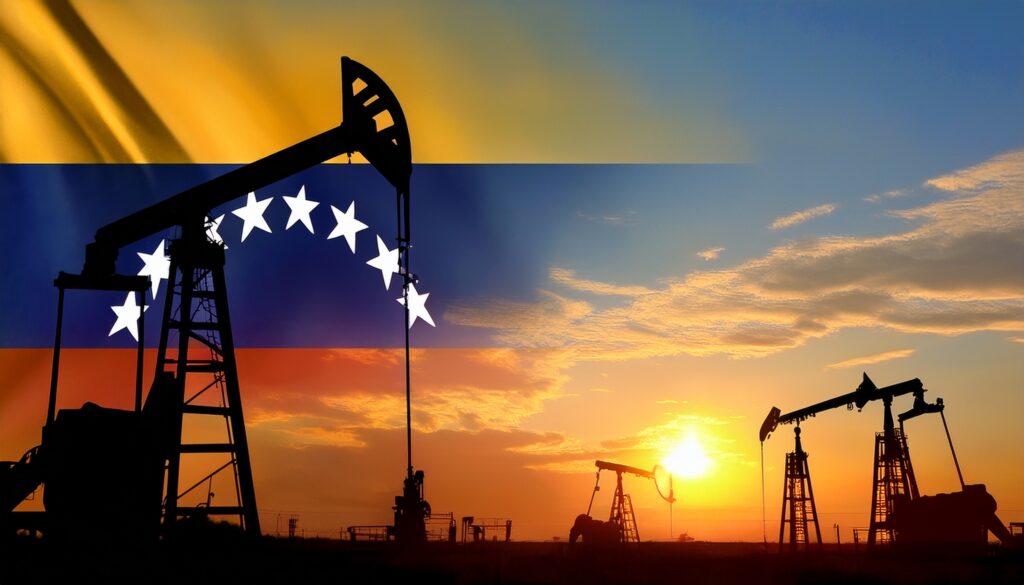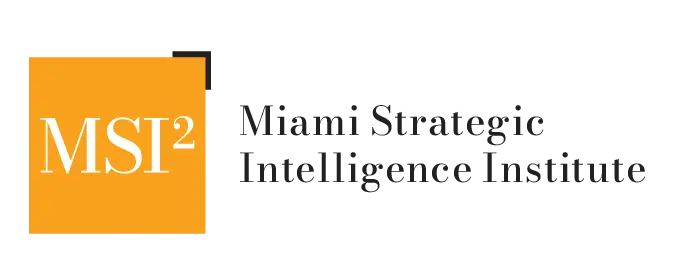15 Apr Free Fall: Venezuela’s Regime Faces Imminent Economic Armageddon
By,
Jesús Daniel Romero, Co-Founder and Senior Fellow, MSI²
The Chavista-Madurista regime is facing one of its most critical phases since the 2014 oil collapse. Despite multiple attempts to restructure its authoritarian, extractivist model, Venezuela is rapidly approaching an irreversible economic breaking point.
We are witnessing the perfect alignment of accelerating factors: runaway inflation, institutional collapse, renewed sanctions, loss of strategic allies, exclusion from the BRICS bloc, a massive exodus of foreign investment, and the consolidation of narcotrafficking as the regime’s financial backbone—all signs point toward an unprecedented economic “Armageddon” (IMF, 2023; HRW, 2023).
1. Collapse of an Unsustainable Model
For years, the regime survived off oil rents, corruption networks, illegal mining, and ideological partnerships. That ecosystem is now exhausted. The once-spontaneous dollarization has lost momentum, the bolívar is plunging again, and public salaries no longer cover basic needs. According to the 2023 ENCOVI survey, over 81% of Venezuelans live in poverty, and real wages continue to deteriorate (Encovi, 2023). There is no viable economic plan, and both domestic and foreign actors lack confidence in any investment scenario.
2. International Investment: A Shut Door
The regime has failed to attract productive capital. The absence of legal guarantees, institutional repression, and a long history of expropriations have led to a capital flight. Even Chinese and Russian firms have scaled down or frozen operations due to the growing legal and reputational risks (AEI, 2023). Venezuela is no longer just an unprofitable market—it is a liability.
3. The Symbolic Blow from BRICS
Venezuela’s exclusion from the 2023 BRICS expansion marked a major diplomatic setback. Despite lobbying from Caracas, the country was not included among the six new members (Stuenkel, 2023). This exclusion, even from a geopolitical bloc where China and Russia hold sway, signaled that Venezuela is not perceived as a strategic economic partner, but rather as a burden.
4. A Functional Narco-State
With its oil sector debilitated, Venezuela has become a key transit hub for cocaine destined for the U.S., Europe, and Africa. Europol and the U.S. State Department confirm the growing involvement of Venezuelan territory in global trafficking routes (Europol, 2023; U.S. Department of State, 2024). Dissident FARC elements, the ELN, and the Tren de Aragua operate freely with state complicity, particularly within corrupt military structures. This criminal economy increasingly substitutes for the state’s formal revenue, deepening the regime’s dependence on illegal sources of liquidity.

5. Tariffs, Sanctions, and Revoked Licenses
In 2024, the U.S. Treasury revoked General License 44 due to the Maduro regime’s failure to implement electoral reforms (U.S. Department of the Treasury, 2024). This halted vital crude exports and significantly reduced the regime’s foreign currency inflows. Sanctions remain among the few tools limiting the regime’s capacity to maneuver internationally.
6. The Oil Industry: A Key Asset for Post-Regime Reconstruction
Venezuela still holds the world’s largest proven oil reserves (BP, 2023), making its oil sector critical for any long-term recovery. However, the state oil company PDVSA is deeply corrupted and dysfunctional (Manzano & Monaldi, 2022). For the industry to become a viable recovery pillar, sweeping reforms are required: depoliticization, legal security, public-private partnerships, and global reintegration with transparent governance (IEA, 2023).
7. Looming Risk: A Greater Humanitarian Crisis After the Regime’s Fall
The fall of the regime, while desired by many, may not immediately translate into stability. According to the UNHCR, over 7.7 million Venezuelans have migrated since 2015 (UNHCR, 2023), and most will not return unless services, employment, and security are restored. Risks include mass unemployment, collapsed infrastructure, hunger, and armed conflict in regions controlled by non-state actors (OAS, 2023; IOM, 2023).
Conclusion: Implosion with Global Consequences
Venezuela’s economic collapse is no longer theoretical. With weakened institutions, rising criminal economies, and geopolitical isolation, the country faces a crisis with regional and global repercussions. The regime’s increasing reliance on narcotrafficking could further destabilize Latin America, while the risk of a post-collapse vacuum may exacerbate humanitarian disaster.
The international community—particularly the U.S., OAS, and multilateral financial institutions—must prepare a comprehensive contingency strategy. This should include humanitarian aid, infrastructure support, and a coordinated framework for restoring democratic governance and reintegrating Venezuela into global markets.
References
American Enterprise Institute. (2023). China Global Investment Tracker. https://www.aei.org/china-global-investment-tracker/
BP. (2023). Statistical Review of World Energy 2023. https://www.bp.com/en/global/corporate/energy-economics/statistical-review-of-world-energy.html
Encovi. (2023). Encuesta Nacional de Condiciones de Vida 2023. Universidad Católica Andrés Bello. https://www.proyectoencovi.com/
Europol. (2023). EU Drug Markets Report 2023. https://www.europol.europa.eu
Human Rights Watch. (2023). World Report 2023: Venezuela. https://www.hrw.org/world-report/2023/country-chapters/venezuela
International Energy Agency. (2023). Energy Policy Review: Latin America. https://www.iea.org
International Monetary Fund. (2023). World Economic Outlook: Navigating Global Divergences. https://www.imf.org/en/Publications/WEO
International Organization for Migration. (2023). Venezuelan Migrant and Refugee Crisis Report. https://www.iom.int
Manzano, O., & Monaldi, F. (2022). The collapse of the Venezuelan oil industry: The role of above-ground risks limiting FDI. Rice University’s Baker Institute for Public Policy. https://www.bakerinstitute.org
Organization of American States. (2023). Informe sobre la crisis institucional y de derechos humanos en Venezuela. https://www.oas.org
Stuenkel, O. (2023). The New BRICS: Global South Power or Geopolitical Illusion? Carnegie Endowment for International Peace. https://carnegieendowment.org
United Nations High Commissioner for Refugees. (2023). UNHCR Operational Update: Venezuela Situation. https://www.unhcr.org
U.S. Department of State. (2024). International Narcotics Control Strategy Report (INCSR). https://www.state.gov/international-narcotics-control-strategy-report-incs
U.S. Department of the Treasury. (2024, January). Treasury Revokes Venezuela General License 44. https://home.treasury.gov/news/press-releases/
